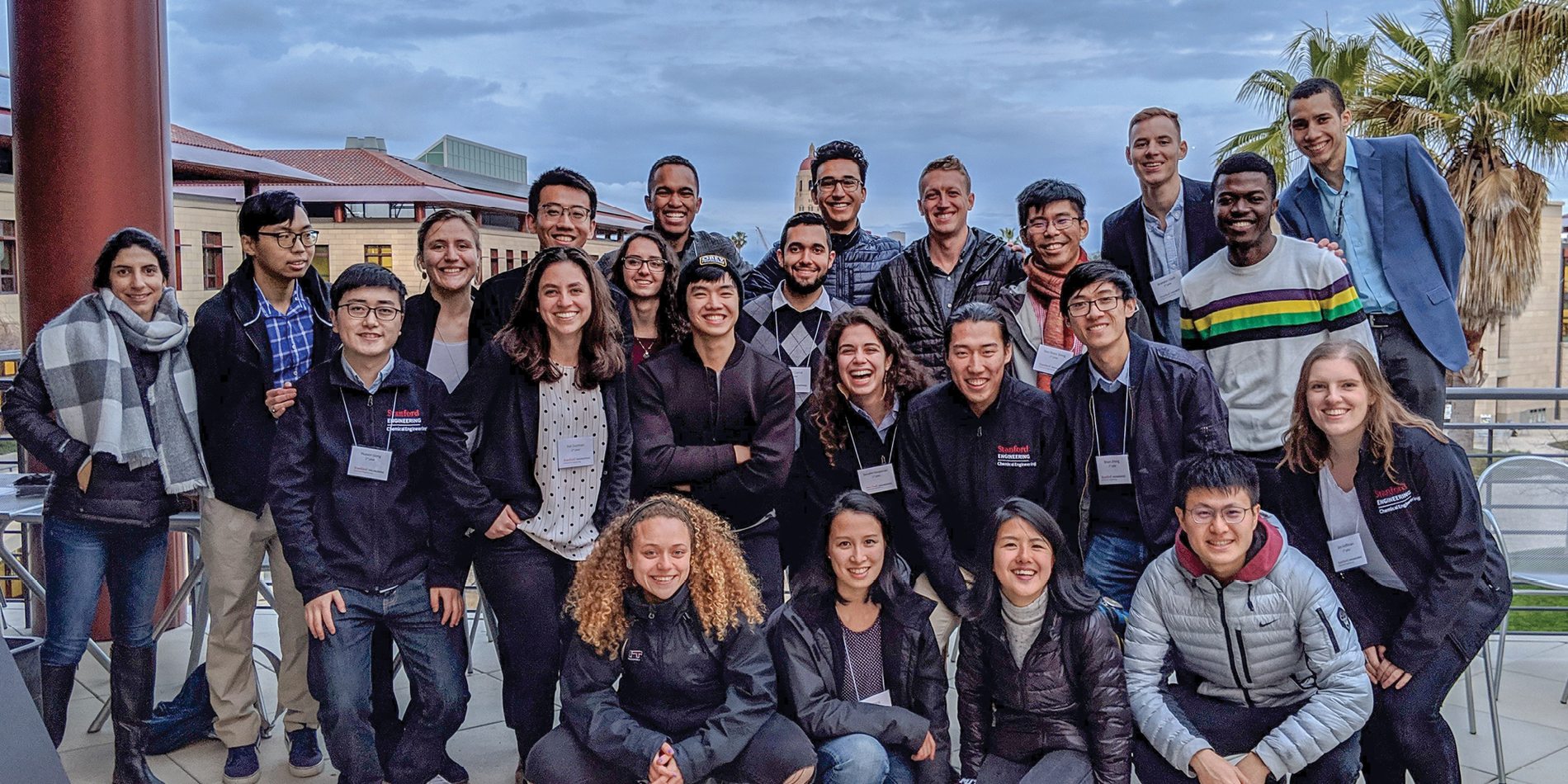Academics & Admissions
What Is Chemical Engineering?
Chemical engineering occupies a unique position at the interface between molecular sciences and engineering. Intimately linked with the fundamental subjects of chemistry, biology, mathematics, and physics — and in close collaboration with fellow engineering disciplines like materials science, computer science, and mechanical, electrical, and civil engineering — chemical engineering offers unparalleled opportunities to do great things.
Stanford Chemical Engineering academic degree programs leverage masterful teaching expertise in producing and manipulating chemicals and materials with new properties for energy, medicine, and electronics. Our curriculum centers around three key areas: Chemistry of Life. Chemistry of Energy. Chemistry of Environment.
Residential Programs

Chemical Engineering PhD Program
The Doctor of Philosophy in Chemical Engineering is awarded after completing a minimum of 135 units of graduate work, satisfactory completion of any additional university requirements, and the following departmental requirements. Completion of an MS degree is not a prerequisite.
Distance Learning Programs
Made for today’s busy professionals and career-focused engineering students, Chemical Engineering’s distance learning programs give you options. Earn Stanford credits, graduate certificates, or an MS degree from the comfort of your computer.

Chemical Engineering HCP Master’s Program
The Honors Cooperative Program is our part-time Master’s program that allows students the flexibility to complete a MS degree at Stanford completely online. The program also allows the flexibility to work towards a MS degree while continuing professional employment.
Unlimited possibilities as Chemical Engineers
Chemical engineers are making a difference in the quality of life every day for everyone. These videos will give you an introduction to Chemical Engineering at Stanford University.
Zhenan Bao’s research group is focused on the synthesis of functional organic and polymer materials, organic electronic device design and fabrication, and application development for organic electronics.






